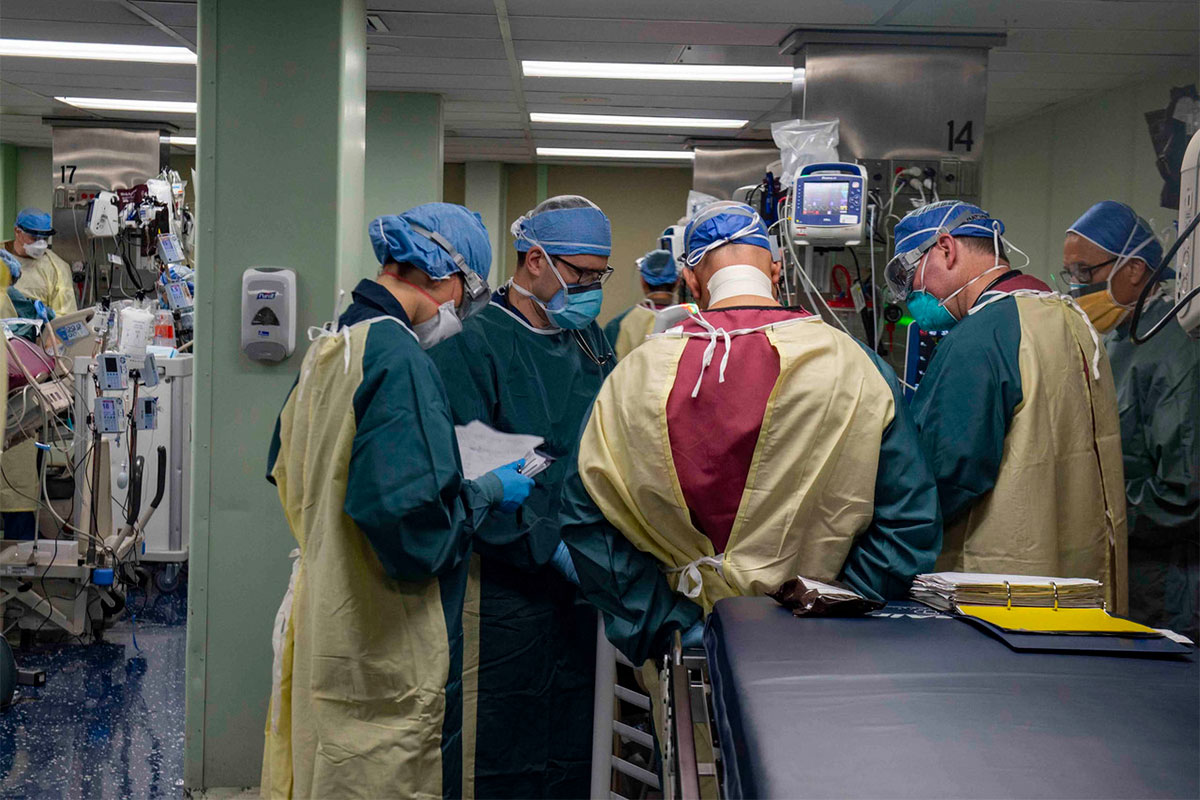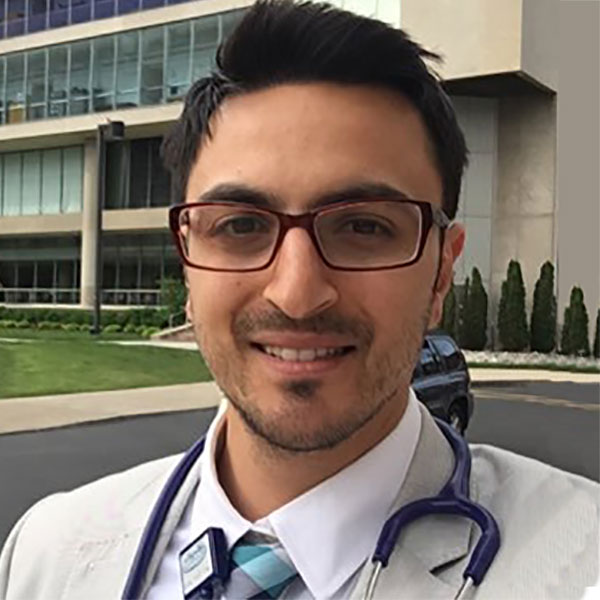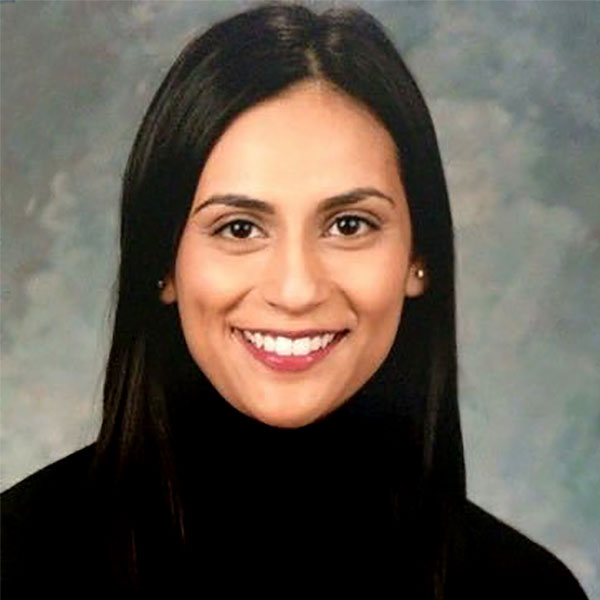The True Test of Leadership is How Well You Function in a Crisis: Michigan ACC FIT Council Takes Action in COVID-19 Pandemic

The COVID-19 pandemic has affected nearly every aspect of life around the world and restructured our priorities and focus. In health care, cardiology fellows joined their colleagues on the frontlines of the battle and became part of the heroic coalition fighting the invisible enemy.
This sudden change of events led to seismic restructuring in training programs in addition to widespread fears for personal safety. Knowing that our strength is in our unity, the ACC Michigan Chapter's Fellows in Training (FIT) Council rallied to advocate for colleagues.
This is the story of how we came together in an unprecedented time.
In March 2020, the Metro-Detroit area became a "hot spot" for COVID-19. The surge in cases forced immediate mobilization of staff, including cardiology fellows, to cover the high demand for physicians during the crisis.
Training programs improvised their response based on their COVID-19 case load. Some programs redeployed fellows to special COVID-19 units, including COVID-19 ICUs. Others required fellows to take research months and back up other physicians to comply with social distancing rules.
These abrupt changes resulted in significant stress and a great deal of anxiety for fellows and their families. The FIT Council recognized the toll the crisis was taking on fellows and took swift action to advocate for them.

First, we used our FIT Council WhatsApp group to assess the situation at programs across the state and identify issues of concern.
The greatest and most universal concerns were keeping trainees safe and educationally engaged, while ensuring completion of graduation requirements as fellows mobilized to help with new roles and responsibilities.
To address all those concerns, the FIT Council arranged a virtual meeting that was attended by the Chapter president, advocacy chair, several cardiology fellowship program directors and chief fellows.
The meeting was lively and resulted in a bidirectional exchange of ideas on best practices for COVID-19 response planning. It also provided a forum for a multi-institutional discussion among fellows and program directors on issues and policies related to redeployment, liability, and reimbursement which varies between states and institutions.
Finally, as follow-up to the FIT Council's initiative, the Chapter called a virtual meeting for program directors to discuss the fellows' concerns and share strategies on balancing education with crisis management.
An unprecedented fourteen program directors participated. This experience demonstrates the importance of community and the value of the Chapter to affect positive change.
Per Chapter President David H. W. Wohns, MD, FACC, "watching our FIT Council leaders and members come together to address unprecedented circumstances that changed their world will undoubtedly be one of the high points of my term as ACC Michigan governor. I could not have been prouder, nor more inspired, by the level of dialog and their resilience in this time of crisis. We all learned and grew from this experience and I commend our FIT council for their courage and commitment."
Chapter Education Chair and Ascension St. John Fellowship Program Director Nancy A. Mesiha, MB, BCH, FACC, agrees. "I congratulate the FIT Council on their leadership during these difficult times," she says.

"Effective communication is the crucial factor for team success and is important during times of uncertainty, change and crisis. Our FIT Council members listened attentively to fellows' concerns across the state, discussed the issues at stake and communicated with program directors. As a result, program directors met and addressed concerns, acknowledged needs, and discussed potential solutions and alternatives. It was a valuable learning and mentoring opportunity for all involved."
The ACC Michigan FIT Council has always been a valuable asset for fellows focusing on educational programs, advocacy, and liaising between Chapter leadership and FITs. Our pandemic experience proved that the FIT Council is also a communication tool that can unite programs statewide and resolve challenges.
Our experience also showed us, in real time, how the Chapter advocates on our behalf and how important it is for us to stay involved.
It was an honor to expand our scope to help our colleagues navigate through this crisis and a privilege to work with mentors, Chapter leaders and program directors.
As a great man from Michigan, Henry Ford, once said, "Coming together is a beginning. Keeping together is progress. Working together is success."
Acknowledgment
The authors acknowledge Chapter President David Wohns, MD, MBA, FACC, and Chapter Executive Director Alice Betz for their leadership and mentorship. We also thank Education Chair Nancy Mesiha, MD, FACC; Past President Akshay Khandelwal, MD, FACC; Advocacy Chair Peter Fattal, MD, FACC; and program directors Nagib Chalfoun, MD, FACC, Spectrum Health; Peter Hagan, MD, FACC, University of Michigan; Bob Rabbani, MD, FACC, Henry Ford Hospital; Michael Gallagher, MD, FACC, Beaumont Royal Oak; Steven Werns, MD, FACC, Beaumont Dearborn; and Anthony Kawa, DO, FACC, Ascension Macomb-Oakland, and all the chief fellows at those institutions for their insight and participation in our joint virtual meeting. Finally, we are grateful for the support and engagement of our FIT Council members: Waleed Al-Darzi, MD; Jelena Arnautovic, DO; Saba Assar, MD; Kartik Kumar, MD; Ryan Malek, DO; Amrit Misra, MD; Malav Parikh, MD; Raid Saco, MD; Dilpreet Singh, MD; Eric Smith, MD; and Adam Tawney, MD.

